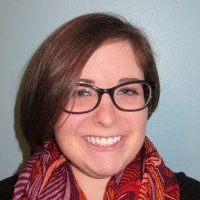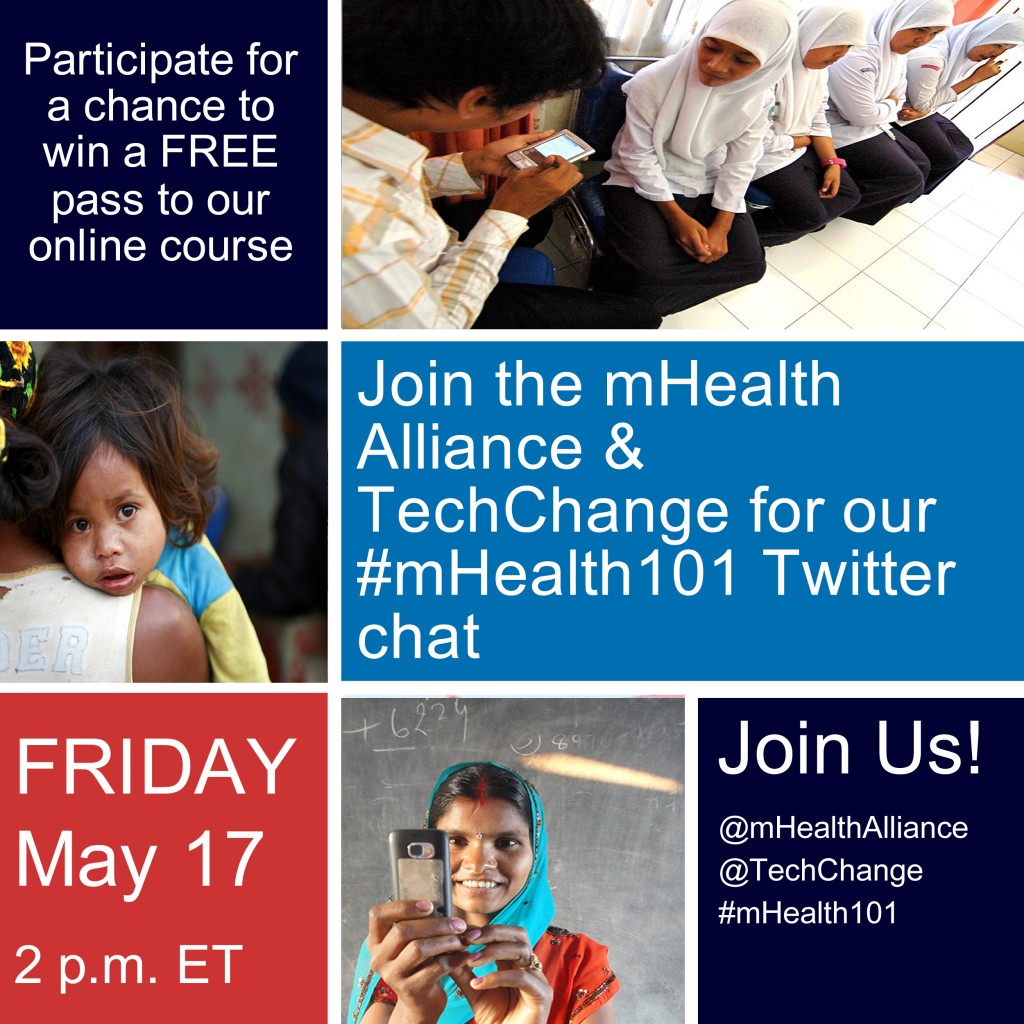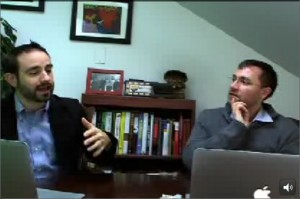In the Fall 2013 session of TechChange’s online course on mHealth – Mobiles for Public Health, several participants attended the fifth annual mHealth Summit, a dynamic conference welcoming clinical, policy, tech, business, and academic experts to reflect on the evolution and future of mHealth.
Setting up an exhibition booth, the TechChange team attended the 2013 mHealth Summit to document the perspectives of mHealth newcomers and experts alike. We were fortunate to see some of the guest experts in our upcoming mHealth class such as Kelly Keisling from NetHope and the mHealth Working Group, Alain Labrique from Johns Hopkins, and alumnus Apera Iorwakwagh of the mHealth Alliance.
Among those we interviewed at the 2013 mHealth Summit, Dr. Layla McCay, physician, policy influencer, Huffington Post blogger, and TC309 alumna, shared her online learning experience in TC309:
See a segment of her blog post, Why mHealth Is Caught Between Vision and Reality, submitted as a TC309 final project, and published on HuffPost Tech:
At the mHealth Summit, Steve Case defined the three stages of entrepreneurship as hype, hope, and happiness. The collective imaginations of Summit delegates have been inspired by “hype” — we believe in the potential of mHealth as a health service improvement tool. That’s why we showed up. This conference seems to be planting us firmly in the “hope” phase — we recognize the significant barriers, the practical challenges to implementation. These are still early days in mHealth. What’s clear is that while mHealth may be caught between vision and reality, it’s not stuck there. It’s going to be amazing. Eventually. When it is, we’ll move into the “happiness” phase, where the potential is realized: the infrastructure’s in place, and mHealth is just a conventional, effective tool that everyone’s using in health care. The specifics of what this success will look like is impossible to predict as the field is moving so fast. What can be easier predicted, is at this point, the entrepreneurs will circle to the next hype.
We look forward to hearing and reading more from Layla and other TC309 alumni!
—
Want to learn more about mHealth and the latest developments in mobile technology in public health? Register now for this 4-week online course on mHealth. Join Kendra Keith, a global health professional specializing in mHealth, as she facilitates of the Fall course starting November 17, 2014.
Kendra is a global health professional passionate about integrating mobile technologies in public health programs, particularly those targeting quality improvement of maternal and newborn health services, elimination of mother-to-child transmission of HIV, and meeting the information and training needs of community health workers. She has diverse mHealth experience including program pilot, evaluation and scale-up in Southern Province, Zambia and donor policy and implementation with the USAID Office of Health Systems. She is a “healthie”, holding a MPH from Boston University School of Public Health, but envious of all “techies”. As a TC309 alumna, she is excited to join the TechChange team to assist facilitation of the upcoming session.



